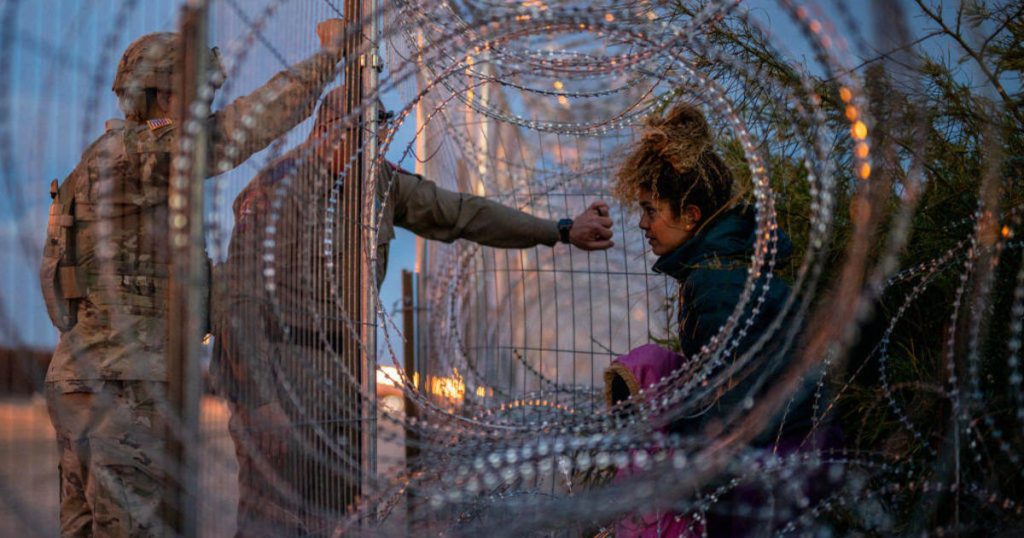Under President Biden’s administration, there has been a significant increase in efforts by state lawmakers across the U.S. to pass stricter immigration laws, as reported by the League of United Latin American Citizens (LULAC). The report found that from 2020 to present, state lawmakers have proposed 233 laws that the group considers to be “anti-immigrant.” These proposals include measures to criminalize unauthorized entry into the U.S., curb sanctuary policies, and address concerns about noncitizen voting attempts. The vast majority of these proposals have been sponsored by Republican lawmakers, with Texas leading the way with 91 proposals over that period.
While most of these proposals have not been passed and enacted, several Republican-led states have succeeded in passing stricter immigration laws. For example, Texas passed a law known as SB4 that empowered state officials to arrest and prosecute migrants suspected of crossing into the U.S. unlawfully. Other states like Iowa, Louisiana, Kansas, and Oklahoma have enacted similar laws, facing legal challenges by the Justice Department. Florida Gov. Ron DeSantis also signed one of the toughest state immigration laws in modern history last year, increasing penalties for employers who hire unauthorized workers and invalidating driver’s licenses issued to undocumented immigrants.
Republican state leaders have attributed their increased involvement in immigration policy to record levels of illegal crossings along the southern border, which they blame on President Biden’s policies. They argue that the influx is due to Biden’s perceived lax and lenient approach to immigration enforcement. However, LULAC believes that these state measures are divisive and counterproductive. The group argues that some of these measures could lead to racial bias against Latinos, as many undocumented immigrants come from Latin America. LULAC has been involved in a legal fight with Texas Attorney General Ken Paxton over allegations of voter fraud.
Analysts like Kathleen Joseph-Bush from the Migration Policy Institute note that states have been reshaping immigration policy through lawsuits against federal immigration policies. Republican-led states like Texas have challenged major actions by President Biden on immigration, successfully pausing programs that would grant legal status to some undocumented immigrants. With no congressional reforms to the immigration system in decades, the federal government and states have taken more unilateral actions on immigration issues. The outdated nature of the immigration system, dating back to the 1980s and 1990s, has created challenges for both states and the federal government in addressing immigration in the 21st century.
Overall, the report highlights the ongoing battle between state and federal governments over immigration policy, with Republican-led states pushing for stricter enforcement measures and challenging federal immigration actions. Despite legal challenges and pushback from civil rights groups like LULAC, states have been able to influence national immigration policies through their own actions in recent years. The lack of comprehensive immigration reform at the federal level has further exacerbated the complexities of an outdated immigration system, leading states to take a more proactive role in shaping immigration policy in the absence of federal action.


